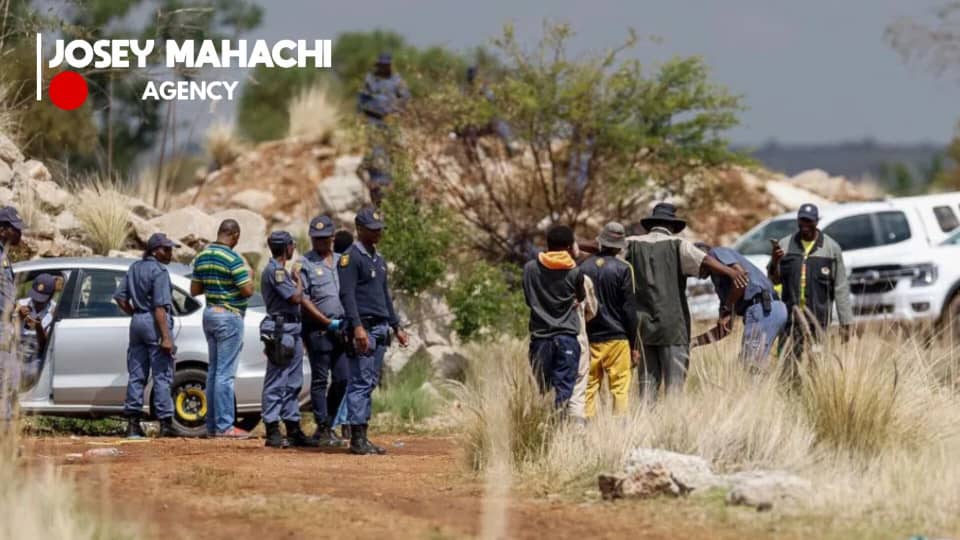By: Lloyd Mahachi
South Africa has cut off food and water supplies to approximately 4,000 illegal gold miners hiding underground in the North West province. The miners, known as “zama zamas,” have been living in the mineshaft for about a month, and the government is trying to “smoke them out” and arrest them. Many of these miners are undocumented immigrants from neighboring countries like Lesotho and Mozambique, and they fear being deported. This fear has driven them to desperate measures, with some reportedly spending months underground in unsafe conditions.
The South African government is taking a firm stance against illegal mining, which costs the country hundreds of millions of dollars in lost sales each year. The practice also has severe environmental implications and is often linked to criminal networks. However, local residents have pleaded with the authorities to assist the miners, citing humanitarian concerns. Community leaders have attempted to negotiate with the miners, urging them to surrender peacefully. Despite these efforts, the standoff continues, with authorities refusing to provide aid to those hiding underground.
The situation is dire, with reports of decomposing bodies and miners struggling to survive without access to necessities. The government’s actions have sparked debate, with some praising the crackdown on illegal activity and others condemning it as inhumane. Human rights advocates argue that the government’s approach prioritizes punishment over people’s lives. The issue highlights the complexities of addressing illegal mining, which is deeply entrenched in communities around mines. Many residents rely on illegal mining as a means of survival, lacking alternative sources of income.
In recent years, South Africa has seen a surge in illegal mining, with thousands of miners operating in abandoned mines. The practice is fueled by poverty and unemployment, with many miners seeking to escape dire economic conditions. The government faces a challenging task in balancing its efforts to combat illegal mining with the need to address the underlying social and economic issues driving the practice. To effectively tackle the problem, policymakers must develop strategies that provide alternative livelihoods for affected communities and address the root causes of poverty.
The ongoing operation, dubbed “Close the Hole,” aims to curb illegal mining and restore order in affected areas. Authorities have confiscated firearms, ammunition, and valuable minerals from illegal miners, disrupting their operations. However, the humanitarian crisis unfolding in the North West province demands immediate attention. As the standoff continues, concerns grow about the fate of those trapped underground, and the long-term consequences of the government’s actions.
Editor: Josephine Mahachi

